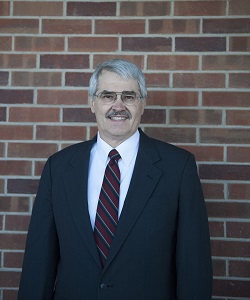Jack Phillips’ defense is that he serves all customers but not all messages. Specifically, he serves all persons without regard to sexual orientation, but as a “cake artist” he cannot, consistent with his religion, create a cake celebrating a same-sex marriage. As a public accommodation, Phillips sells goods to the public but claims his product is art, and the law is compelling its creation contrary to the Free Speech Clause. At oral argument, however, it became apparent that Justice Kennedy was troubled by the record showing that the Colorado Civil Rights Commission was prejudiced against Phillips’ religious beliefs. So, it was no surprise when the case was decided under the Free Exercise Clause. Indeed, even before the decision was handed down, progressive media were preparing their readers for such a loss and previewing upcoming LGBTQ cases.
So, what are the takeaways from the Masterpiece case?
Civil Rights Equivalency: The claim that the LGBTQ struggle is the equivalent of the Civil Rights Movement by Black Americans is tacitly rejected. While there is no constitutional protection for private racist conduct, the government must be neutral toward religion, including the religious belief that same-sex marriage is unnatural and morally wrong.
Smith Rules: The Free Speech Clause protects speech but not conduct. The Free Exercise Clause protects religious speech and conduct. So when it comes to religious liberty you would think the Free Exercise Clause cuts a wider channel than free speech. Not so. Smith (1990) greatly hobbles the reach of the Free Exercise Clause. Masterpiece was decided on the assumption that Smith remains the law.
Speech vs. Conduct: It is understandable that Phillips led with a free speech defense. But the Court struggled with whether “cake art” was the place to draw the line between speech and conduct. Phillips’ counsel was peppered at oral argument about a wedding makeup artist or a bride’s hairdresser. That said, there are easier cases involving wedding vendors engaging in speech, e.g., a string quartet, vocalist, or photographer. Cases in the pipeline concerning T-shirt manufacturers and wedding videographers are good fits for the free speech defense.
Challenging Discriminatory Laws: Just a year ago in Trinity Lutheran (2017) the Court held that targeting a group because of its religious status violates the Free Exercise Clause. In Lukumi (1993), ordinances gerrymandered to discriminate against religion violated the Free Exercise Clause. In Masterpiece, a neutral law that is administered in a manner that discriminates against religion violates the Free Exercise Clause. This is a formidable array. Litigators now have multiple paths to challenge laws that burden their clients’ religion, each of which can be pursued with probing discovery into the law-making and law-enforcing process.
Limiting Locke v. Davey: It was just a year ago, as we awaited the Court’s decision in Trinity Lutheran, that religious claimants were menaced by Locke v. Davey (2004). Trinity Lutheran, and now Masterpiece, sharply limit Locke and its departure from the rule prohibiting religious discrimination.
Commissioners Muted: Colorado’s commissioners are surely puzzled at being the fall guys. All they did was give voice to the culturally correct utterances of their betters that conservative religion is “out of touch” and needs to modernize its biblical exegesis or be forced to do so. In an interesting twist on free speech, blue state officials will now have to mute their disdain for orthodox views of sexuality or have their policing overturned as unconstitutional.
Jurisdiction Over Religious Questions: Masterpiece invoked the rule that civil authorities are to make no judgments concerning the validity, meaning, or importance of a religious belief. The rule recognizes that government and religion are different centers of authority, and the state has no jurisdiction over such questions.
What Justice Requires? Masterpiece includes a paragraph assuring clergy that no law could require they officiate at a same-sex wedding. But according to Smith such a law would be constitutional if generally applicable and neutral as to religion. Is this an exception to Smith? Or is this Justice Kennedy’s gut feeling as to what justice requires, even though getting there violates current legal principles? Is it that clergy and weddings taken together are just too “churchy,” too at the core of religion that the Free Exercise Clause has got to produce a win in such a case? Kennedy does not explain. But observe that judges using their “gut” to decide what is central to a religion violates the rule in the prior paragraph.
Tolerance or Inconvenience: Attorney General Sessions, in a speech welcoming the result in Masterpiece, said tolerance requires that gays get their wedding cake at another bakery. This is unresponsive to the problem as framed. Colorado has adopted a civil rights law and sexual orientation is a protected class. It has never been a justified refusal of service that the same goods can be obtained elsewhere without inconvenience.
A Way Forward: As the chess pieces are now arrayed, it seems the religious merchant loses before the Court as presently constituted in a 5-4 split, unless the goods or services are speech. The way to prevent the coming crackup is the give-and-take proposed by peacemakers like “Fairness For All.” Google it.

